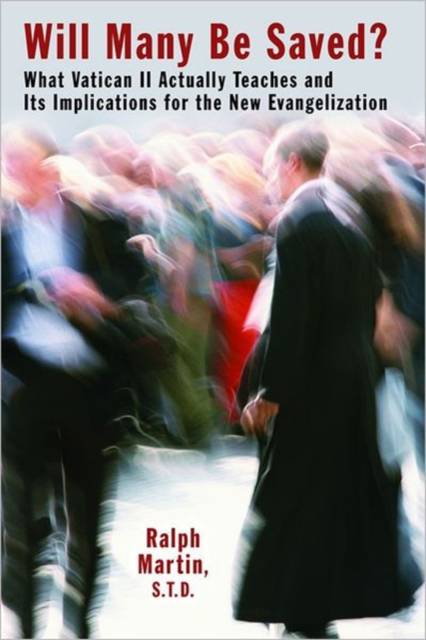
- Afhalen na 1 uur in een winkel met voorraad
- Gratis thuislevering in België vanaf € 30
- Ruim aanbod met 7 miljoen producten
- Afhalen na 1 uur in een winkel met voorraad
- Gratis thuislevering in België vanaf € 30
- Ruim aanbod met 7 miljoen producten
Zoeken
Will Many Be Saved?
What Vatican II Actually Teaches and Its Implications for the New Evangelization
Ralph P Martin
Paperback | Engels
€ 26,95
+ 53 punten
Omschrijving
The question of whether and how people who have not had the chance to hear the gospel can be saved goes back to the beginnings of Christian reflection. It has also become a much-debated topic in current theology. In Will Many Be Saved? Ralph Martin focuses primarily on the history of debate and the development of responses to this question within the Roman Catholic Church, but much of Martin's discussion is also relevant to the wider debate happening in many churches around the world.
In particular, Martin analyzes the Dogmatic Constitution on the Church, the document from the Second Vatican Council that directly relates to this question. Contrary to popular opinion, Martin argues that according to this text, the conditions under which people who have not heard the gospel can be saved are very often, in fact, not fulfilled, with strong implications for evangelization.
In particular, Martin analyzes the Dogmatic Constitution on the Church, the document from the Second Vatican Council that directly relates to this question. Contrary to popular opinion, Martin argues that according to this text, the conditions under which people who have not heard the gospel can be saved are very often, in fact, not fulfilled, with strong implications for evangelization.
Specificaties
Betrokkenen
- Auteur(s):
- Uitgeverij:
Inhoud
- Aantal bladzijden:
- 336
- Taal:
- Engels
Eigenschappen
- Productcode (EAN):
- 9780802868879
- Verschijningsdatum:
- 20/08/2012
- Uitvoering:
- Paperback
- Formaat:
- Trade paperback (VS)
- Afmetingen:
- 150 mm x 226 mm
- Gewicht:
- 458 g

Alleen bij Standaard Boekhandel
+ 53 punten op je klantenkaart van Standaard Boekhandel
Beoordelingen
We publiceren alleen reviews die voldoen aan de voorwaarden voor reviews. Bekijk onze voorwaarden voor reviews.











